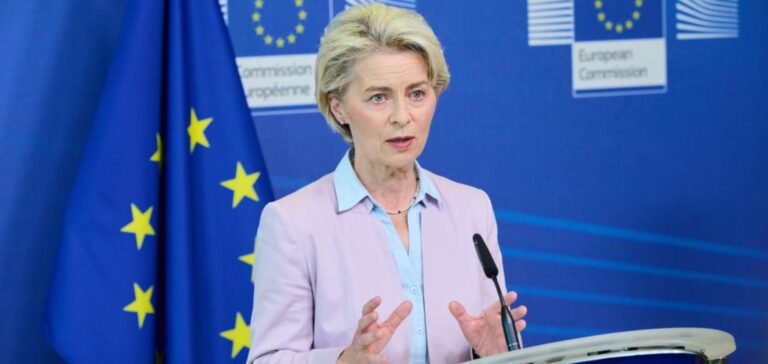The cap on Russian gas prices will not be adopted by the EU. It is not yet ready for such a measure, which is supported by many nations. The EU considers a price cap to be impractical at this time. Thus, Brussels intends to focus on other measures to control the price surge.
The EU is not convinced by a cap on Russian gas prices
In fact, the EU wants to focus more on the drastic reduction of gas demand but also the acceleration of the REPowerEU plan. As a reminder, this plan includes measures to deal with disruptions in the energy market. Thus, it aims to achieve energy savings, produce clean energy and diversify the EU’s supply sources.
In this sense, the proposal to cap Russian gas prices does not raise much enthusiasm. Moreover, this has already been refused by Norway, the EU’s main gas supplier.
The EU energy ministers are moving towards a general cap on gas prices. This is in parallel with other measures taken in the electricity sector.
What decisions for the EU?
In the State of the Union address, Ursula von der Leyen detailed the measures. In fact, there is a particular focus on reducing overall electricity consumption in EU countries.
Redistribution of revenue and reduction of electricity demand
In addition, in order to overcome the obstacles that this reduction in consumption implies, the President of the Commission has proposed an additional measure. It proposes to cap the revenues of companies that produce low-cost electricity.
In this sense, it affirms:
“At this time, the benefits must be shared and redirected to those who need it most. Our proposal raises more than 140 billion euros for the member states, to cushion the blow directly.”
In addition, it supports the redistribution of profits from large oil, gas and coal companies. The use of these taxes would be in favor of helping households and businesses in difficulty across Europe. This while adding that these are crisis measures and that they are under review. To date, the EU’s main focus has been on lowering gas prices and ensuring security of supply.
Adapted FTT and support for companies and households in difficulty
The Commission is also committed to working on a more representative gas benchmark. In fact, the current gas market has evolved. There is a shift from importing gas by pipeline to increasing quantities of LNG. However, the TTF reference has not been adapted.
Therefore, the European Commission is committed to supporting companies in the energy sector. The latter, facing serious liquidity problems on the markets, are putting the energy system at risk. Thus, the EU plans to regulate aid measures to ensure delivery and a level playing field.
Turning to renewable energies
Ursula von Der Leyen also stressed the importance of moving away from fossil fuels and focusing on renewable energy. She deplores the dependence on oil and the subsidies given to fossil fuels. This vision is shared by many actors, including Antonio Guterres, for whom the world is going“in the wrong direction“.
However, she sees an opportunity to move forward with a paradigm shift to clean energy sources.
Regarding the gas price cap, the Commission President said that the measure was still being discussed. In fact, several obstacles seem to stand in the way of this measure. Several Member States are concerned that a price cap on imported gas could jeopardize supply. This creates differences of opinion about the usefulness of this decision.
As a result, more time would be needed to study the gas price cap solution.
Italian and Greek pressure
Italy and Greece, on the other hand, appear to be strongly in favor of a cap. The Italian undersecretary for foreign affairs, Manlio Di Stefano, had said that it was urgent to cap gas prices. This is to support consumers, who have been severely impacted by soaring energy prices. He added that this move would be a logical response to the price hike caused by Moscow.
Mr. Di Stefano refers to the decrease in supply from Russia. He also states:
“Gas supply concerns are weighing on European energy markets as Moscow arbitrarily reduces gas flows to drive up prices.”
This refers to the current situation with Nord Stream 1, which is currently shut down. Gazprom claims that the shutdown is due to maintenance issues. However, the EU says this is a direct response to sanctions against Russia for the invasion of Ukraine.
Manlio Di Stefano also said that Italy has already been proposing a cap on gas prices for some months. In this sense, he remains convinced that concrete measures taken in this regard would help reduce prices.
At the same time, the Greek Prime Minister, Kyriakos Mitsotakis, wants a temporary intervention in the European wholesale gas market. He has been appealing since March 2022 because he believes that current prices do not reflect normal market forces. Thus, it proposes a targeted and temporary intervention to normalize the situation and an adjustment of the TTF price.






















